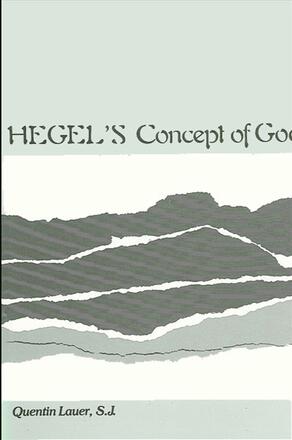
Hegel's Concept of God
Alternative formats available from:
Presents the first comprehensive view of Hegel’s contribution to the God-question.
Description
"If one takes a panoramic view of Hegel's entire philosophical endeavor—the endeavor to come to grips with and to be committed to reality in the concrete—one is struck by one inescapable idea: The Hegelian enterprise is an extraordinarily unified and grandiose attempt to elaborate one concept, which Hegel sees as the root of all intelligibility—the concept of God, whatever that term is going to turn out to mean…
"…The question with which we are faced … is neither whether Hegel is correct in what he says nor whether his interpreters are justified in what they say of him. Rather the question is one of finding out just what Hegel does say and of determining what impact that can have on our own thinking…
"…Why, then, the 'Concept of God'? The answer is to be found in the culmination of the entire Hegelian system, 'The Philosophy of Absolute Spirit. ' Only in the light of 'absolute Spirit' is anything Hegel says intelligible … in Hegel's view, 'absolute Spirit' is in fact to be identified with God and that, therefore, only if Hegel's 'Concept of God' is intelligible, will anything Hegel says be intelligible. " — from the Introduction
Quentin Lauer, S. J., is President of the Hegel Society of America and an Honorary Member of the Hegel Society of Great Britain. His books include Phenomenology: Its Genesis and Prospect; a translation of Edmund Husserl's Phenomenology and the Crisis of Philosophy; Hegel's Idea of Philosophy; A Reading of Hegel's Phenomenology of Spirit; and Essays in Hegelian Dialectic. He is a professor in the Department of Philosophy at Fordham University.
Reviews
"It is a major treatment of a major figure, the discussion of whose thought has produced a veritable Renaissance of studies in the last twenty years. " — James Yerkes, Earlham School of Religion